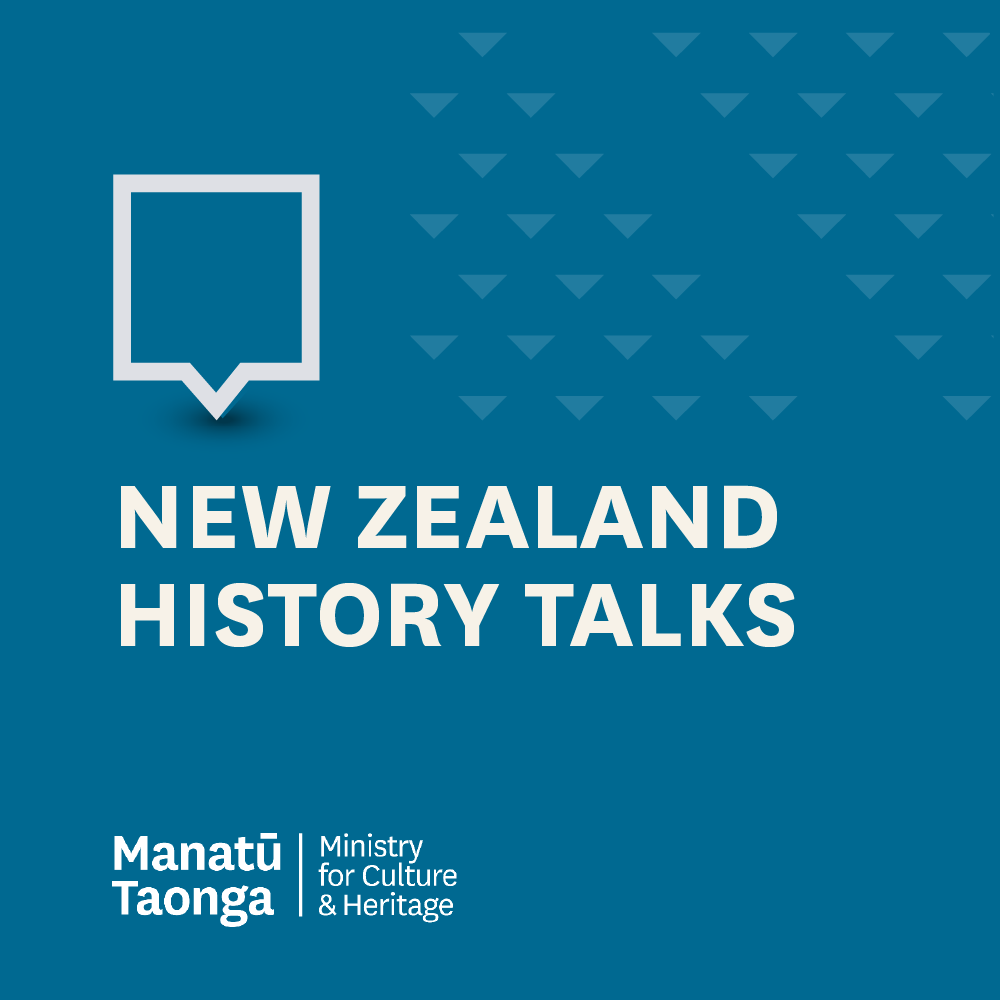Episodes
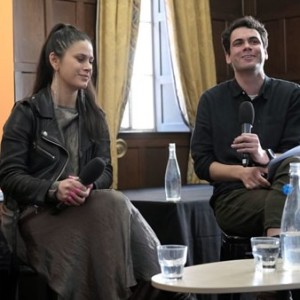
Friday Sep 23, 2022
Mahuru Māori: Māni Dunlop and Jamie Tahana
Friday Sep 23, 2022
Friday Sep 23, 2022
Māni Dunlop (Ngāpuhi) and Jamie Tahana (Ngāti Pikiao, Ngāti Makino, Te Arawa) are journalists and national broadcasters who actively champion te reo Māori me nga tikanga Māori through their work.
Māni was the first Māori journalist at RNZ to host a weekday show, while Jamie is one of RNZ’s youngest Māori News Directors. They began their careers as RNZ interns, Māni in 2011 and Jamie in 2014. Māni initially worked in the general newsroom focusing on housing and social issues. Jamie started at Radio New Zealand Pacific (formerly International) with a focus on climate change and political undulations.
Now, they’re incredibly popular Māori broadcasters. Every week, more than 600,000 people listen to RNZ and in 2021 the listenership of Te Ao Māori shows increased 55%. Thousands of Twitter followers want to know what their ‘takes’ are, beyond the stories they write and produce to the public.
For Mahuru Māori, Māni and Jamie spoke about their experiences, challenges, and triumphs of being at the front line of change in public radio. The past decade has seen dramatic changes in public radio, influenced by iwi radio, social media, politics, and pandemics. Today, these two young Māori journalists are now major decision-makers in the inclusion of Māori content and te reo Māori at a national level.
Facilitated by Pou Matua Mātauranga Māori, Senior Historian Mātauranga Māori, Matariki Williams (Tūhoe, Ngāti Hauiti, Taranaki, Ngāti Whakaue).
These monthly Public History Talks are a collaboration between the Alexander Turnbull Library and Manatū Taonga Ministry for Culture and Heritage. Recorded live at the Wellesley Boutique Hotel on 6 September 2022.
Download a transcript of this talk:
https://nzhistory.govt.nz/files/pdfs/transcript-mahuru-maori-2022-09-07.pdf
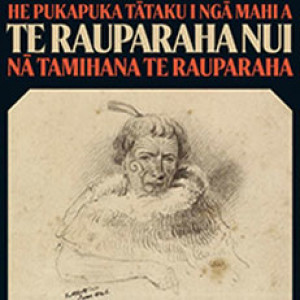
Thursday Mar 04, 2021
Tamihana Te Rauparaha’s life of Te Rauparaha
Thursday Mar 04, 2021
Thursday Mar 04, 2021
‘He Pukapuka Tātaku i ngā Mahi a Te Rauparaha Nui’ is a 50,000-word account of Te Rauparaha’s life written by his son Tamihana Te Rauparaha in the late 1860s. A rich source of Ngāti Toa history, language and culture, it offers fascinating insights into traditional Māori society and the tumultuous history of the 1820s and 1830s. This was an era characterised by intertribal conflict and the redrawing of the tribal map of Aotearoa, as well as by early encounters between Māori and Europeans that were largely conducted on Māori terms. Tamihana’s account of his father’s life has now been published in full for the first time in a parallel Māori/English edition.
In this talk, the book’s translator and editor Ross Calman will discuss the historical context that led to the creation of Tamihana’s manuscript, give an overview of how the manuscript has been represented by various writers and translators over the past 150 years and describe some of the challenges he faced in interpreting the manuscript for a modern audience.
These monthly Public History Talks are a collaboration between the National Library of New Zealand and the Ministry for Culture and Heritage.
Recorded live at the National Library of New Zealand, 2 December 2020.
See also Te Rauparaha: Kei Wareware podcast series
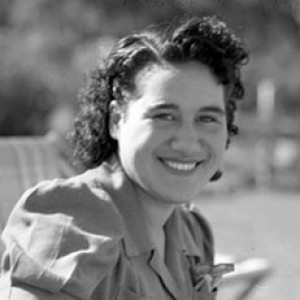
Wednesday Sep 02, 2020
Māori women and the armed forces in WWII
Wednesday Sep 02, 2020
Wednesday Sep 02, 2020
Angela Wanhalla (Kāi Tahu), is an associate professor in the History Programme, University of Otago. She teaches and writes about New Zealand history and is currently involved in a collaborative research project on the histories and legacies of the Māori home front during the Second World War.
In this Public History Talk Angela Wanhalla looks at the recruitment of Māori women into the auxiliary services, why they joined, and how their wartime service impacted on their post-war lives.
These monthly Public History Talks are a collaboration between the National Library of New Zealand and the Ministry for Culture and Heritage.
Recorded live at the National Library of New Zealand, 2 September 2020.
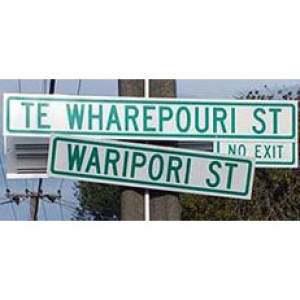
Monday Jul 20, 2020
Memorials, names and ethical remembering
Monday Jul 20, 2020
Monday Jul 20, 2020
How do we remember the past? What place do colonial memorials have in public spaces? How can we better represent diverse histories in the landscape?
In this first Public History Talk for 2020, Professor of Māori education at Victoria University, Joanna Kidman hosts a panel to discuss these issues and offer a facilitated conversation with the public on colonial memorials, history and memory.
About the panelists:
Morrie Love (Te Atiawa ki te Upoko o te Ika a Mauī, Taranaki, Ngati Ruanui) is Director Raukura Consultants, a writer and historian.
Nicky Karu (Hauraki: Paeroa and Thames Coast) Tira Poutama Iwi Partnerships.
Ewan Morris (Pākehā) is a historian with an interest in public memory and cultural contestation over symbols.
These free Public History Talks are a collaboration between the National Library of New Zealand https://natlib.govt.nz/ and Manatū Taonga/Ministry for Culture and Heritage https://mch.govt.nz/
Recorded live at the National Library of New Zealand, 15 July, 2020.

Wednesday Sep 11, 2019
Pūkana: moments in Māori performance
Wednesday Sep 11, 2019
Wednesday Sep 11, 2019
From Porgy and Bess to haka, to Elsdon Best and Tuini Ngāwai, Pūkana will range far and wide to give a sense of the ihi, wehi and wana, inherent to Maori performance.
Paul Diamond is lead curator for the Pūkana exhibition, and talks about the background to the exhibition which celebrates Māori performance across time. Paul (Ngāti Hauā, Te Rarawa and Ngāpuhi) was appointed as Curator, Māori at the Alexander Turnbull Library in 2011. He is an author and has also worked as an oral historian and broadcaster.
Pūkana opens on 14 September, 2019 and runs until 23 May 2020 at the National Library of New Zealand, in Wellington New Zealand.
These monthly Public History Talks are a collaboration between the National Library of New Zealand https://natlib.govt.nz/ and the Ministry for Culture and Heritage https://mch.govt.nz/.
Recorded live at the National Library of New Zealand, 4 September 2019.
Please note, due to copyright restrictions, some of the audio and video excerpts played during the presentation are not able to be republished and the presentation has been edited to reflect this.
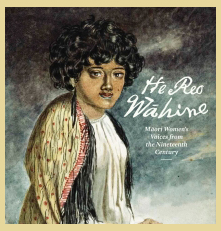
Wednesday Apr 04, 2018
Māori Women, Politics and Petitions in the 19th Century
Wednesday Apr 04, 2018
Wednesday Apr 04, 2018
Dr Angela Wanhalla teaches in the Department of History and Art History at the University of Otago, Dunedin. This presentation draws upon her most recent book, He Reo Wāhine: Māori Women’s Voices from the Nineteenth Century, co-authored with Māori-language scholar and historian, Lachy Paterson.
Collective petitions have helped force significant political and social reform in New Zealand. This talk introduces women petitioners and their concerns and argues that petitions are an important body of Māori writing that can offer insight into Māori women’s experiences of the colonial era.
These monthly Public History Talks are a collaboration between the National Library of New Zealand and the Ministry for Culture and Heritage.
Recorded at the National Library of New Zealand, 4 April 2018.
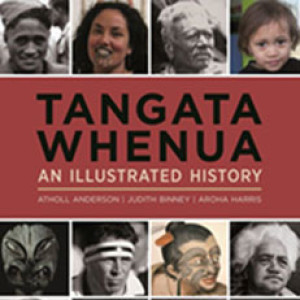
Thursday Mar 19, 2015
Aroha Harris: New Perspectives on Māori History
Thursday Mar 19, 2015
Thursday Mar 19, 2015
Lecturer in History at the University of Auckland, Aroha Harris (Te Rarawa, Ngāpuhi) talks about new perspectives on Māori history. Her latest book 'Tangata Whenua: An Illustrated History' is a collaboration between Harris, Judith Binney and Atholl Anderson and is published by Bridget Williams Books.
Recorded at Ministry for Culture and Heritage, 4 March 2015. Introduction by Ripeka Evans.

